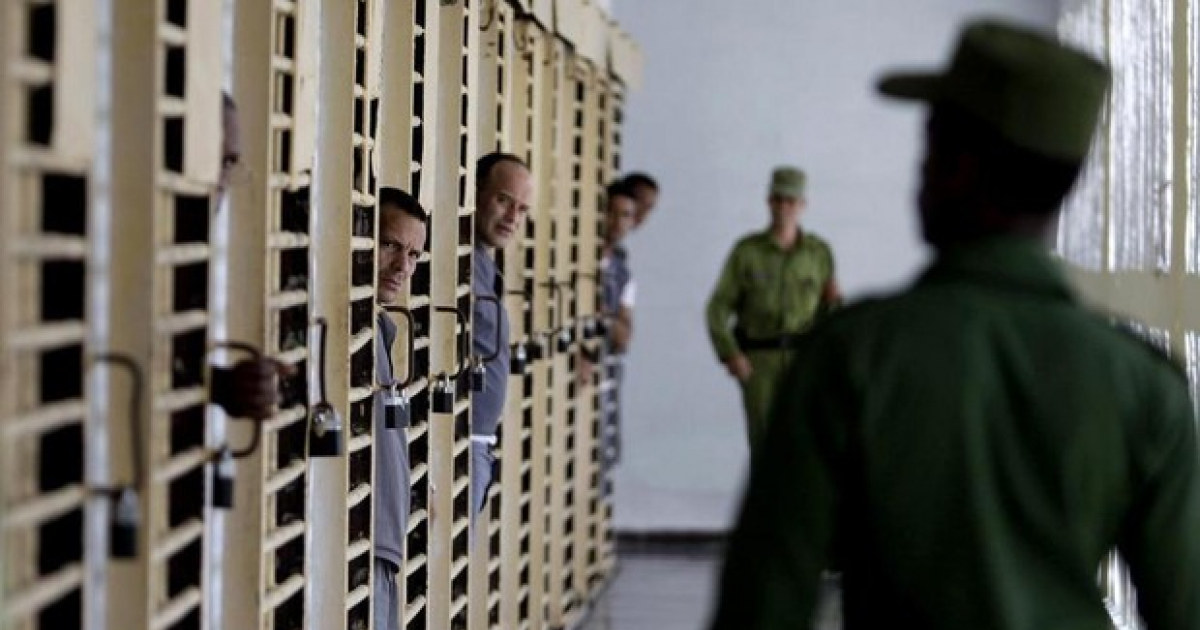
Related videos:
The Government of Cuba has warned that the early releases granted to 553 inmates, as part of the agreement with the Vatican last January, may be revoked if the beneficiaries fail to comply with the established conditions.
In an interview broadcasted by Cuban Television, the Vice President of the Supreme People's Court (TSP), Maricela Sosa Ravelo, confirmed that the release process has been carried out satisfactorily; however, she emphasized that those released must fulfill a series of obligations to maintain their status of early release, as cited by the official newspaper Granma.
He specified that, once released, the beneficiaries are subject to supervision and must comply with certain requirements established by law. Among these, the obligation to enroll in education or employment if they are fit for it stands out, as well as appearing before the execution judge on the specified dates.
"The execution judge is responsible for informing the sanctioned individuals about their rights, restrictions, and projections following their early release," the official explained.
The vice president of the TSP warned that the failure to comply with these provisions could result in the revocation of the release benefit, which would mean returning to the correctional facility to complete the remaining time of the sentence.
"This benefit is understood as a trial period, as the sanctioned individuals have not fully served their sentence," emphasized Sosa Ravelo.
On January 14, the Ministry of Foreign Affairs of Cuba announced the release of 553 prisoners as part of the Ordinary Jubilee of 2025 declared by Pope Francis. According to the statement, this decision was made after a "careful analysis" and based on the principles of "justice and humanism" of the Cuban penal system.
On March 11, the TSP announced the completion of the process of the release of 553 inmates, which began on January 14, the majority of whom were common prisoners.
However, the measure does not constitute a total release. The television report that presented the news emphasized that the beneficiaries have received an "early release" and that they continue to serve their sentence under certain conditions.
Frequently Asked Questions About Releases in Cuba and Their Political Context
What does "early release" mean in the Cuban context?
The "early release" in Cuba does not entail the elimination of the sentence, but rather the beneficiaries continue to serve their sentence under certain conditions. These individuals are subject to supervision and must meet specific requirements, such as enrolling in education or employment if they are able, and appearing before a judge on designated dates.
Why does the Cuban regime threaten to revoke the releases?
The Cuban regime has warned that releases can be revoked if the beneficiaries do not comply with the imposed conditions. This includes the obligation to maintain behavior in accordance with established standards, and any breach could lead to readmission to prison to complete the original sentence.
What role did the Vatican play in the releases of detainees in Cuba?
The Vatican acted as a mediator in the process of releasing prisoners in Cuba, which was highlighted by the Cuban regime as a gesture of humanity in the context of the Ordinary Jubilee of 2025 declared by Pope Francis. The Vatican has been involved in the negotiations that led to the release of 553 inmates, reflecting its influence in the humanitarian field.
What are the main criticisms of the releases in Cuba?
Various human rights organizations have criticized the lack of transparency in the release process in Cuba. They point out that the conditions for those released are restrictive and that the process does not represent a significant improvement in the human rights situation on the island, as political prisoners remain under strict surveillance and can be easily rearrested.
Filed under: